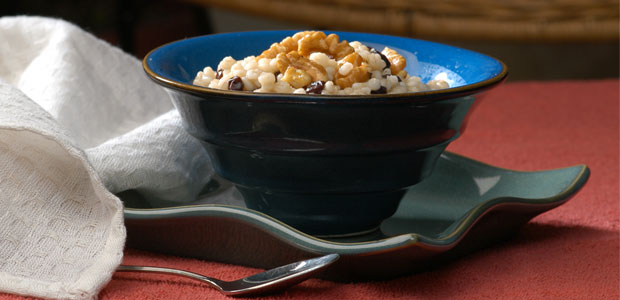Advertisement
A Good Breakfast Can Aid Weight Loss
Whole foods kitchen

New Year’s often brings renewed enthusiasm for fad diets. But before you put yourself on a strict program, have a look at your regular regimen and ask yourself how well you’re doing with the most important meal of the day: breakfast.
After all, breakfast is a major opportunity to eat well. Essential nutrients, such as complex carbohydrates, protein, fibre, and vitamins and minerals (from natural or fortified cereals) can boost energy throughout the day.
Breakfast reduces hunger, results in fewer cravings, and consequently leads to reduced consumption of sugary and fatty snacks later on in the day. Some people skip breakfast to avoid calories but evidence shows they miss out on important fibre intake. One of the habits of highly effective 100-year-olds is consuming breakfast regularly.
So what is the best breakfast? It’s something that is quick but healthy and tastes great. If you’re new to breakfast, experiment with something light, such as a green power breakfast drink or a seasonal fruit compote. These provide fibre, vitamins, and minerals, as well as antioxidants and complex carbohydrates. To feel full, our stomachs also need a little protein and fat, so add some ground flaxseeds, hemp nut seeds, or fresh nuts to make a more complete meal.
If you are already a breakfast-eater, take a quality-control check. Have you started to rely too heavily on boxed and processed cereals? Maybe it’s time to cook grains each morning. The recipe for Hot Barley Breakfast with Honeyed Walnuts is a delicious way to start.
Whole grains such as barley and oats are high in B vitamins, which help with stress, and minerals such as chromium, which improves insulin response. Jammed with fibre and complex carbohydrates, whole grains provide sustained energy for the next few hours, leaving you able to focus on the day’s activities.
For those who are already enjoying the benefits of a cooked cereal each morning, it may be time to experiment with “living food” – soaked grains blended with fruits into a “porridge” consistency. Raw Buckwheat Breakfast provides a delicious example of how easily this can be done. Sprouting the grains by soaking for eight to 12 hours in water starts their natural growing processes, releasing more available carbohydrates and retaining enzymes that help promote digestion.
Juicing fresh fruits and vegetables also provides valuable enzymes and disease-fighting antioxidants. A juice a day may indeed keep the doctor away when ingredients such as ginger and garlic are added to provide powerful chemicals to help protect against heart disease and cancer. I like to recommend a vegetable juice as part of a breakfast that also contains some whole foods, so that you get the benefits of fibre. (Most juicers remove plant fibre.)
Whatever your New Year’s resolution, consider breakfast a healthy habit in your overall lifestyle plan.
Recipes




